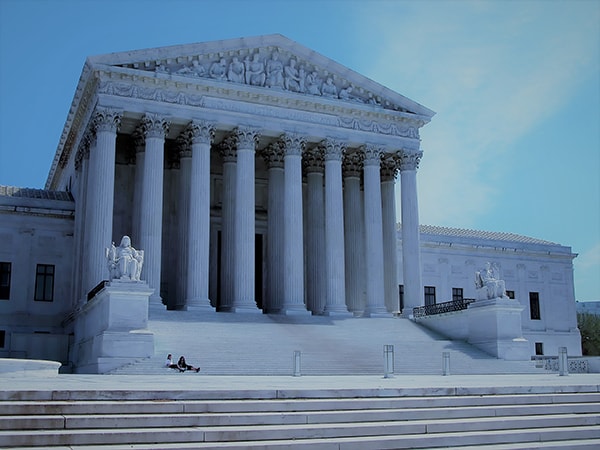Federal Crime Lawyer: Protecting Your Legal Rights Versus Serious Federal Charges
Federal Crime Lawyer: Protecting Your Legal Rights Versus Serious Federal Charges
Blog Article
Demystifying the Process of Federal Appeals: What You Required to Know
Browsing the complex realm of government charms can frequently feel like passing through undiscovered waters for those not familiar with the procedure. Understanding the subtleties of appellate court jurisdiction, the intricacies of submitting a notification of charm, offering an engaging short, and making a persuasive dental debate are essential elements that can substantially impact the result of a situation. By deciphering the layers of complexity bordering federal appeals, people can acquire a clearer understanding right into the mechanisms that control this vital stage of the legal system.
Recognizing Federal Appeals Process
Looking into the elaborate realm of the federal allures process introduces a methodical and structured trip with the judicial system - federal rico appeal lawyers. Federal allures act as a vital mechanism for assessing decisions made by reduced courts. Recognizing this process is crucial for anybody associated with legal process at the federal level
The procedure normally begins with an event dissatisfied with a reduced court's ruling submitting a notification of allure. This sets off a testimonial by a greater court, where a panel of judges evaluates the legal debates presented by both events. Briefs laying out the legal reasoning behind each event's position are submitted, and dental disagreements might be heard to clear up complicated issues.
The appellate court's choice is based upon a thorough evaluation of the reduced court's process and the arguments presented. The courts do not review truths however focus on whether legal mistakes happened that impacted the reduced court's decision. Once the appellate court gets to a choice, it can verify, turn around, remand, or change the reduced court's judgment, offering quality and finality to the lawful conflict. Understanding this process is vital for browsing the complexities of federal charms effectively.
Appellate Court Jurisdiction Discussed

Appellate courts have territory over particular kinds of cases, normally those entailing legal errors, procedural problems, or inquiries of regulation instead of accurate disputes. The jurisdiction of appellate courts is normally detailed in laws and regulations that control the court system. Comprehending appellate court jurisdiction is crucial for celebrations associated with the appeals procedure as it determines whether a situation is eligible for review and the degree to which the appellate court can interfere in the lower court's choice.
Filing a Notification of Charm
The initial action in starting the government appeals procedure involves submitting a Notice of Charm with the proper appellate court. top federal appeal lawyers north carolina. This critical record formally alerts the court and the various other celebrations associated with the instance that the appealing party intends to look for a review of the reduced court's decision. Filing a Notice of Appeal is a rigorous step-by-step demand that establishes the appellate procedure in activity
When preparing the Notice of Appeal, it is necessary to make certain compliance with the specific regulations and standards of the appropriate appellate court. The file must typically include details such as the case name, the lower court's name, the day of the judgment being appealed, and a succinct declaration showing the grounds for the allure.
When submitting a Notification of Allure,Timeliness is of the essence. Missing the target date for submitting this document can lead to the charm being dismissed, emphasizing the significance of prompt and accurate initiation of the allures procedure. It is a good idea to seek legal advice to browse the complexities of submitting a Notification of Allure efficiently.
Briefing and Oral Disagreement
In the appellate process, providing written briefs and participating in oral arguments play pivotal functions in supporting for the appealing event's setting before the appellate court. Briefs are extensive lawful records that describe the celebrations' disagreements, lawful authorities, and analysis sustaining their positions. These composed entries provide the court with an in-depth understanding of the facts of the case, the pertinent regulation, and why the appealing event believes the reduced court's decision need to be rescinded.
Complying with the submission and testimonial of the briefs, dental disagreements provide the parties a possibility to further clarify their positions, deal with any inquiries the appellate courts may have, and highlight bottom lines from their created briefs. Dental debates are a possibility for the attorneys to convince the judges through spoken advocacy and responses to queries pop over to this site from the bench.

Receiving the Appellate Court Decision

Conclusion
In final thought, the federal allures procedure is a complicated however essential action in seeking justice. Recognizing the appellate court territory, submitting a notification of appeal, preparing briefs, and providing oral disagreements are all crucial elements of this procedure. Ultimately, receiving the appellate court choice can provide clarity and resolution to lawful disputes. It is essential to browse the government allures process with persistance and focus to detail to attain a reasonable end result.
As we advance from comprehending the government appeals process to studying the ins and outs of appellate court jurisdiction, a basic element comes to light concerning the authority and limitations of these greater courts in the legal landscape. Appellate court territory refers to the extent of cases that a specific appellate court has the power to assess and make a decision upon. Unlike test courts that listen to instances for the first time, appellate courts are limited to assessing decisions made by lower courts. Recognizing appellate court jurisdiction is critical for celebrations included in the charms process as it identifies whether a case is qualified for testimonial and the extent to which the appellate court can interfere in the reduced court's decision.
Whether the appellate court verifies, reverses, or remands the lower court's choice, comprehending the effects of the ruling is vital for all parties entailed in the appellate process.
Report this page